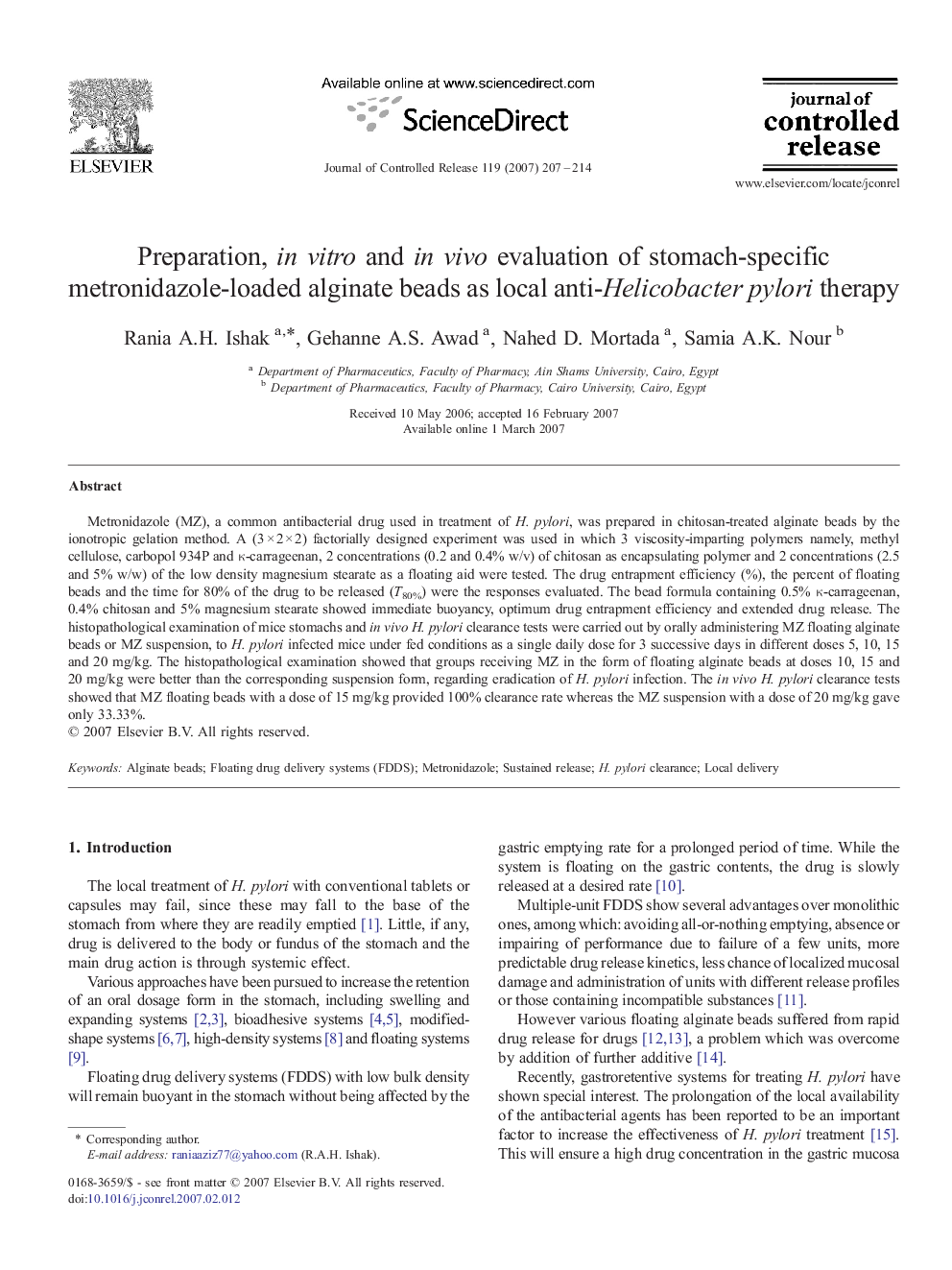| Article ID | Journal | Published Year | Pages | File Type |
|---|---|---|---|---|
| 1427013 | Journal of Controlled Release | 2007 | 8 Pages |
Metronidazole (MZ), a common antibacterial drug used in treatment of H. pylori, was prepared in chitosan-treated alginate beads by the ionotropic gelation method. A (3 × 2 × 2) factorially designed experiment was used in which 3 viscosity-imparting polymers namely, methyl cellulose, carbopol 934P and κ-carrageenan, 2 concentrations (0.2 and 0.4% w/v) of chitosan as encapsulating polymer and 2 concentrations (2.5 and 5% w/w) of the low density magnesium stearate as a floating aid were tested. The drug entrapment efficiency (%), the percent of floating beads and the time for 80% of the drug to be released (T80%) were the responses evaluated. The bead formula containing 0.5% κ-carrageenan, 0.4% chitosan and 5% magnesium stearate showed immediate buoyancy, optimum drug entrapment efficiency and extended drug release. The histopathological examination of mice stomachs and in vivo H. pylori clearance tests were carried out by orally administering MZ floating alginate beads or MZ suspension, to H. pylori infected mice under fed conditions as a single daily dose for 3 successive days in different doses 5, 10, 15 and 20 mg/kg. The histopathological examination showed that groups receiving MZ in the form of floating alginate beads at doses 10, 15 and 20 mg/kg were better than the corresponding suspension form, regarding eradication of H. pylori infection. The in vivo H. pylori clearance tests showed that MZ floating beads with a dose of 15 mg/kg provided 100% clearance rate whereas the MZ suspension with a dose of 20 mg/kg gave only 33.33%.
